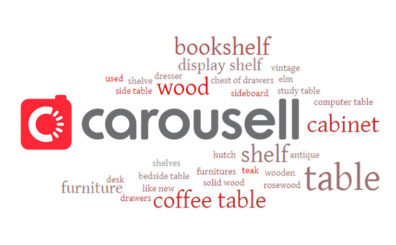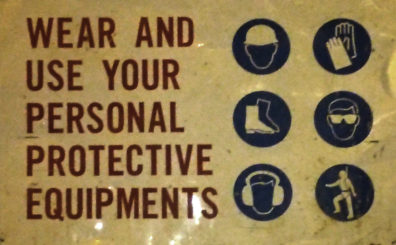
Why do we dislike ‘reads’ and ‘eats’ used as nouns?
This sign at Marks & Spencer at Parkway Parade promises a “free $10 food voucher with min $150 spend on apparels and lingerie”.
I have always had a vague antipathy towards the shop that offers rewards for a “minimum spend”, the colleague who apologizes in advance for a “big ask”, the restaurant that promises “good eats”, and, yes, even the website that recommends “good reads”.
Turns out: I am not alone!
https://www.quora.com/Besides-me-who-else-hates-the-plural-nouns-reads-and-eats-and-why
Why do we have this yucky feeling?
It’s the tone. These phrases rub us the wrong way because they are aggressively colloquial. Perhaps we feel that we are being disrespected, that the message is invasive in its excessive familiarity (inappropriate intimacy).
Do not think that because we are slightly offended by an informal tone, we are “too sensitive”. In general, being able to discriminate (tell apart) subtle shades of tone is a good thing. Many different words and phrases can designate the same objects and ideas, but a speaker’s or writer’s word choice conveys important subtleties.
Of course, in a truly informal context, an informal tone is appropriate. Whether a particular media channel should be considered an informal context is a separate question.
Which words cause discomfort?
Some words that change from one part of speech to another without changing form are unobjectionable, if not downright invisible.
The annoying phrases I’ve listed are all verbs used as nouns. But so are these:
- The attacks in the capital shocked everyone.
- The works in the gallery are priceless.
- We receive many calls from overseas.
Or are they? There is no rule that says a noun is just a noun and a verb as just a verb. In fact, there are dozens of common words that are both noun and verb.
Some words traditionally considered nouns are controversial when used as verbs, at least in some circles.
- Feel free to contact us if you have any questions.
- How do you think the campaign will impact sales?
- I need to access the file for the project.
Some new usages (such as the verbs “Google” and “friend”) are tied to new tech, which arguably merits specific, new, concise usages.
Some new usages are just trendy (or experimental—new but not trendy) and are unlikely to survive when their novelty, trendiness, or shock value has waned.
Disliking certain usages and not others doesn’t mean we conscientious objectors are hypocritical or inconsistent. It just means we’re linguistically conservative. We accept older usages because they have already stood the test of time. Such usages are unobtrusive. They don’t yank on our sleeve demanding attention like the newer ones sometimes do.
Ironically, sometimes the “new and obtrusive” usages align perfectly with obsolete, forgotten ones that are even older, so it’s dangerous to insist that anything in the English language is better just because it’s old.
“What’s wrong with neologisms? Language change is natural!”
Some readers eagerly repeat hip, new usages, some cringe inwardly, and some sneer. Words, like products for sale, have early-adopters and skeptics. Some never “cross the chasm” and become accepted by the majority.
I think what bothers the sneerers is that not all those who repeat neologisms understand what they are doing. Ad copy is created for the sake of fleeting expediency. The oblivious repetition of flashy, gimmicky, casual language out of context tends to strike thoughtful, well-read language enthusiasts as callous destruction, not as natural evolution.
Surely, the thinking goes, we should respect existing usage when it makes sense to do so, and welcome change by making considered, conscious choices. Language is a beautiful thing; we shouldn’t tromp all over it with muddy, ignorant boots.
I’m not sure it’s reasonable to insist that languages change only by means of considered, conscious choices. Since not everybody who needs language has the leisure for such consideration, it seems callous to insist on it.
On the other hand, surely the task can be—and already has been—delegated to armies of dedicated culture keepers: writers, editors, and lexicographers who perform both the innovative and the stabilizing functions that ensure we can all more or less continue to communicate with each other effectively and enjoyably.
“Just get over it.”
In general, I don’t mind seeing people bend language into new forms. The conversion of “because” from a conjunction into a preposition genuinely amuses me. Language isn’t just for communication, it’s also for play. I have no problem letting people have a little fun with words—and in any case, I couldn’t stop them if I did!
Even in the awkward case of “eats (n. pl.)” and “reads (n. pl.)”, worries about the risk of permanent damage to the vast and amorphous thing that is the English language are misplaced. We can always find room for different ways to express ourselves.
Still. The niggling discomfort when I hear of “good eats” and “good reads”, now that I know its source, nevertheless remains.
Further Reading
On “verbing”:
- This is my favorite Calvin and Hobbes comic ever:
http://www.gocomics.com/calvinandhobbes/2013/01/28 - https://oupeltglobalblog.com/tag/nouns-used-as-verbs/
- https://www.1843magazine.com/content/ideas/anthony-gardner/youve-been-verbed
- https://www.grammarly.com/blog/the-basics-of-verbing-nouns/
- https://www.bl.uk/shakespeare/articles/verbing-shakespeares-linguistic-innovation
- http://www.bbc.com/culture/story/20160825-why-medalling-and-summering-are-so-annoying
On “spend”:
I would rephrase the text to “with a minimum of $150 spent…” so that the idea of “spend” becomes an adjective modifying “dollars”. Using the gerund “spending” is also grammatically correct and seems to be regarded as slightly more normal than using “spend”.



